- Home
- Todd Strasser
Blood on My Hands Page 9
Blood on My Hands Read online
Page 9
There was one exception, one night in the summer when he really did seem excited. It began with his waking me up with a phone call around one in the morning. “Get on the computer,” he said when I answered.
“Why? Is something wrong? Are you okay?”
“Just do it! I have to talk to you.”
Still half asleep, I staggered to my computer and slumped into the chair. A few moments later Slade came on.
“You look wide awake,” he said with a smirk.
“You woke me up!” I tried to sound annoyed, but I was happy to see and speak to him, even if it was on the jumpy Internet connection.
“I know what I want to do!” he announced excitedly. “I’m going to be a commercial fisherman.”
“Are you high?”
“No! I’m serious! I mean, I know I have to work with my dad when I get back, but someday that’s what I’m going to be.”
Since Slade and his dad loved to fish, it wasn’t a totally off-the-wall idea. But it came pretty close. “Where did you come up with this?” I asked.
He told me about a guy named Rick he’d met that night in a bar near Fort Benning. Rick was in another National Guard unit and his family ran a fishing trawler out of Montauk Point on Long Island. “It was amazing, Cal. He talked about what he and his family have been doing for generations, and showed me some pictures and it was like, ‘Hey! This is it! This is what I’ve been waiting for! It’s what I’ve always wanted to do!’ You know what I’m saying? Like after all this time of feeling like there was something else out there, but I didn’t know what it was. Well, now I know!”
I thought of asking exactly how he intended to be a commercial fisherman in Soundview, or what would become of the drywall business, but it was such a joy to hear him sound excited that I couldn’t rain on his parade. So I said, “That’s great, Slade. And it sounds like you’ve found a friend, too.”
I had no way of knowing that was the wrong thing to say. On the computer screen the smile left Slade’s face and his voice immediately became subdued. “Well, yeah, except Rick’s unit’s been called up. They’re being sent overseas to do support work for the troops. He leaves next month.” He was quiet for a moment and I wanted to kick myself, until I thought of something that really scared me.
“Slade, do … you think they may call up your unit, too?”
“Right now I’d say the chances are about sixty-forty,” he answered glumly.
I felt my body clench. “If you go, how long?”
“At least a year. But a lot of guys are being stop-lossed and wind up doing two tours.”
That would be two years. I couldn’t imagine him being away for so long. I’d be almost twenty by the time he came home. It felt like an impossibly long time. And what if he was injured or killed?
We talked a little longer, then said good-bye. I went back to bed but couldn’t fall asleep. I was convinced that commercial fishing was just a whim. But what if he was sent overseas? Then what?
Chapter 22
Monday 5:30 P.M.
IT’S DINNERTIME AND I’m in a convenience store with a craving for Ben & Jerry’s Chocolate Fudge Brownie ice cream. The place is nearly empty, but the bright lights are unnerving. There’s no place to hide in here. Cameras are mounted on the walls, and up in the corner is one of those big convex mirrors so the man behind the counter can watch. I feel like some kind of nocturnal creature that’s been thrust suddenly into the sunlight.
I glance at the counter, where the clerk is watching a small TV. I’m starving and can’t wait to eat, but also afraid to go up to the checkout, where yet another stranger will have an opportunity to look at my face. But I can’t dawdle, as that will also attract his attention. I pick out a frosty container and head for the front.
As I get close to the cash register, I become aware of the sound of the television. A female voice reporting: “In a news conference today, Soundview Police Chief Samuel Jenkins said the police still want to speak to Callie Carson in connection with the murder two nights ago of seventeen-year-old Katherine Remington-Day. While declining to say whether Ms. Carson is a suspect in the case, the police chief warned local citizens not to help her hide.”
The scene shifts to a podium with several microphones, where Chief Jenkins stands. He’s a heavyset man, almost bald on top except for some long thick strands of black hair combed straight back and held in place with gel. “We believe that Ms. Carson is still in the area. She needs food and a place to stay, so it stands to reason that someone may be sheltering her. If that’s true, people need to be aware that they may be charged with rendering criminal assistance if Ms. Carson is implicated in this crime.”
The scene shifts back to the TV studio and the blonde anchorwoman. In one corner of the screen is a big grainy gray blowup of my face from the yearbook. “Ms. Carson is about five feet tall and weighs around a hundred pounds. If you think you’ve seen her, the police have provided a phone number—”
Seeing that photo, and hearing again that I’m wanted, gives me a physical jolt. Even though hardly a second passes when I don’t worry about who might be looking at me, that photo on TV kicks it all up a notch.
I’m so fixated on the TV that I don’t realize that the man at the cash register has stopped watching. He’s looking at me curiously, as if it’s just struck him that I’m roughly the same height and weight as this person the police are looking for. I freeze, caught between opposing impulses to drop the ice cream and run and to pay as fast as I can and then run. Both are bad ideas. Instead, I place the container on the counter, begin searching in my pockets for money, and say, “Isn’t that weird? I mean, five feet tall and a hundred pounds? That’s the same as me. Well, I hope they find her, you know?”
The man blinks, then nods, takes my money, and makes change. “You want a bag for that?”
“Yeah, sure, and maybe a couple of napkins and a plastic spoon?”
“You got it.”
A moment later I’m out on the sidewalk, walking away quickly but hopefully not so fast that it’s noticeable. Down the block is a small park, where I settle onto a bench set close to some trees and start spooning delicious ice cream into my mouth and wondering which is more unbelievable—that I said what I said to the man behind the counter or that it seemed to work.
I have to admit that I’m pretty pleased with myself, although it does make me wonder where this talent for subterfuge comes from. When did I learn to be so devious?
Just then a police car shoots past.
When he wasn’t fighting with Sebastian, Dad tended to be quiet. He worked long hours and when he came home at night, he always had a couple of drinks and watched TV. On the weekends he worked around the house or watched sports. Mom and I got to be pretty good at tiptoeing around him.
When I first started running on the cross-country team, I asked him to come to one of my meets, but he always had excuses to explain why he couldn’t. Mom would come to watch if she could.
Once, in the car, going home, I asked her if Dad had played any sports in high school.
“Tennis,” she said.
“Seriously?” I said. I’d never heard him mention that, and I’d never seen a tennis racket or a tennis ball anywhere in our house. “So he stopped?”
“Uh-huh.”
“How come?”
“You’ll have to ask him,”
Mom said. But I never did.
The police car stops in front of the store where I bought the ice cream. As the officer gets out, the counterman I thought I so cleverly fooled comes out to the sidewalk and points in my direction.
By the time the officer gets back into the police car and makes a U-turn, I’ve scooted out of the park and am crouching down behind a Big Brothers clothing bin in the parking lot next door. But I know I can’t stay here, or anywhere around town. I’ve been spotted and I have to believe that other officers are coming. There’s a rusty chain-link fence at the back of the parking lot with a hole just large enough for me to squeeze t
hrough, onto the property that’s part of the middle school.
Moments later I’m cutting through the school parking lot, keeping low and weaving between the parked cars, feeling as if the Earth’s gravity has just doubled and is pressing heavily on me and making it more difficult to go forward. I’m weighed down by self-doubt. Where do I go? Where can I hide this time?
The sudden descent from overconfidence to no confidence leaves me scared, anxious, all alone in the parking lot, and all alone in the world. I’m dirty, smelly, and tired, and I don’t want to hide again. I don’t want to be by myself anymore. I feel so insignificant and worthless that I might just curl up in a fetal position right here between the parked cars and wait to be discovered and arrested and sent to jail forever. Maybe they’ll put me in the Fishkill Correctional Facility, the same place as Sebastian. The notorious Carsons—brother-and-sister murder-and-mayhem team.
No, I forgot. Prisons aren’t coed.
I hear shouting from the field behind the school. It sounds like an after-school soccer game. I know it’s crazy, but right now I need those voices, ordinary people around me—otherwise I’m going to implode.
Sure enough, there’s a soccer game in progress. The sidelines are filled with parents and families. The soccer field borders on a marshy area thick with tall reeds. I join the cheering crowd on the side nearest the reeds, in case I have to make a dash for freedom, and stand where I’m both part of the crowd and slightly apart from it. I just have to cling to the hope that no one is going to think that a girl on the run would be standing around watching a soccer game.
At first I’m so wrapped up in my own thoughts that I’m only vaguely aware that it’s a girls’ soccer game. But gradually I realize that they’re not only girls but girls about the same size and age of Alyssa, Slade’s little sister.
And there she is, racing around the field, her brown ponytail bouncing. I quickly glance down the sideline to see if Slade’s here. There’s no sign of him on this side of the field and I look across to the people lining the other side. Oh my God! He’s partway down the field, yelling encouragement. The pendulum of my emotions swings back toward elation, and the next thing I know, I’ve walked down the sideline until I’m directly across from him. Each time his eyes move in my direction, I raise my hand to shoulder height and softly wave.
But he’s too involved in the game to notice. It’s driving me crazy. I want to run all the way around the field and into his arms, but I might just as well start shouting to everyone that the girl the police are looking for is here.
I wave again and this time his eyes stay on me. His eyebrows dip, then shoot upward as if they’re going to rocket right off his forehead. I press my finger to my lips and feel joyous. Slade looks to the left and the right and then begins to walk down the sideline toward the goal, as if he’s coming around the field to me. He’s a little gimpy and I can tell his knee is still bothering him.
That’s when a police car shoots past the front of the school at pursuit speed, but once again with its lights and siren off. It’s headed toward the entrance to the parking lot. Then tires screech to my left as another police car races up the footpath that connects the school grounds to the park next door. They’re headed for the soccer field, and they’ve blocked both avenues of escape.
Chapter 23
Monday 6:09 P.M.
MOST OF THE people on the sidelines are still cheering the soccer players, but a few are watching as the police officers get out of their cruisers and start looking around. Near the goal, Slade stops, his head turning from the police to me and back again. Meanwhile, I’ve backed slowly away from the crowd, toward the reeds. Everyone’s so busy watching either the game or the police that no one notices that as soon as I feel the reeds at my back, I turn and step into them.
The ground turns soft and muddy. My feet sink and my shoes stick. No matter how slowly and carefully I try to go, the reeds scratch and rattle as I weave through them. As soon as I think I’m out of sight, I stop and listen, but all I hear is the crowd cheering. To the west the sun is beginning to set. Golden red light catches the cattails overhead. In the stillness of the reeds, I wonder whether the police will search the marsh and, if they do, whether I’ll be able to hear them coming first.
Or will it be Slade who comes? My shoes sinking into the mud, and chilly water seeping against my feet, I wonder if he saw me go into the reeds. If the police leave before the soccer game ends, will he come in here and find me?
I hear a rustle and my heart leaps. It’s him! I swivel my head around anxiously, trying to peer through the reeds, searching for a glimpse.
And then I hear a growl.
Every muscle in my body goes rigid. I can’t breathe. Now more rustling and another growl. My heart’s racing.
Now a snarl so close that I don’t understand why I can’t see the animal making it. I turn my head in every direction. Where is it?
The fear is so intense I feel light-headed. Oh God, Callie, whatever you do, don’t faint!
Then I see movement through the reeds.
Bared white fangs and yellow wolflike eyes.
The snarling dog with bared teeth has a brown-and-black face; the fur on its back is raised. A German shepherd. I can hardly breathe. They’ve brought a police dog!
I am frozen with fear and clench my hands so tight that for a moment I don’t realize that the pain I’m feeling is from my own fingernails digging into my palms. Big dogs have always terrified me. And no big dog scares me more than a German shepherd. This one probably weighs more than I do. Its long teeth and ferocious growl make me want to cry out for help. Suddenly I can’t wait for the police to get here and arrest me. Anything as long as they take this dog away. Please!
The dog has stopped four feet from me. As our eyes lock I wait for the crash of the police officers through the reeds.
But all I hear are parents yelling and cheering for their children. The dog snarls but doesn’t come closer. I stay frozen, my feet now icy cold and soaked in muddy water. The sun is still setting, the light grayish and filtered. Where are the police? Why aren’t they coming?
But wait. Does Soundview even have a K9 unit? I don’t remember ever seeing one before. Is it possible this isn’t a police dog?
I’ve hardly completed the thought when a woman calls, “Franklin! Here boy! Franklin!”
Without taking its yellow eyes off me, the shepherd perks up its ears.
“Come on, Franklin!”
Franklin’s fur relaxes. The teeth disappear under the snout. He turns and trots away. A rushing wave of relief leaves me feeling light-headed. Instinctively I squat down and close my hands tightly around the base of some stalks to steady myself.
“Shrimp?” A voice, hardly more than a whisper, comes through the reeds.
Except for that one time when Slade excitedly announced that he wanted to become a commercial fisherman, our video chats were gloomy and depressing, with Slade going on and on about how much he hated being at Fort Benning, how lonely he was, and how worried he was about being sent overseas. It got to the point where I began to dread speaking to him and wished he wouldn’t tell me everything he was thinking and feeling. I certainly wasn’t doing the same. I didn’t tell him about the fun I was having with Katherine and her crowd, and I definitely didn’t say anything about the pressure from Katherine to break up with him.
But not being honest made me feel guilty, and it was hard to hide that guilt when we were face-to-face on our computers. By August I was making excuses to speak to him on the phone instead of video chatting. But that just meant more lies and made me feel even worse.
“What’s wrong?” he asked one night on the phone when I said my computer was acting up.
“Nothing.”
“Come on, Cal. You told me two weeks ago your computer was broken. You’re telling me it’s still broken?”
I didn’t know how to answer. I was sick of hearing myself make up excuses and lies.
“Cal, be honest. Tell me
what’s going on,” he urged.
What I could be honest about were my feelings. “I miss you. I wish you’d come home. It’s hard when you’re so far away.”
“What’s hard?” he asked. “Staying faithful? Not going out with other guys?”
“No!” I gasped, stung by the accusation. “Nothing like that! What makes you say that?”
“The three Ps,” he said.
I had no idea what he was talking about. “What?”
“It’s something they teach in the army. To succeed and survive you need patience, perseverance, and paranoia. When I first heard that, I understood the patience and perseverance right away, but paranoia? Who wants you to be paranoid? But they say if you want to survive in war, that’s how you have to be.”
“This isn’t war.”
“Right. But you know what? Part of war is survival, and right now I feel like I’m fighting for the survival of Cal and Slade. Because my gut is telling me something is wrong, and paranoia is telling me that it’s more than just a broken computer. It’s already happened twice in my unit.”
“What’s happened?”
“The e-mail comes. The one from the girlfriend saying it’s over. That can’t happen to us, Cal. It’ll kill me.”
“I haven’t seen anyone,” I said.
“You sure?”
I don’t know why that question bothered me so much. Maybe because his neediness felt like more pressure on me.
“I think I’d know if I was seeing someone,” I said. But even as I said it, I felt my insides twist with guilt, because Slade’s instincts were right. It wasn’t another guy I was seeing, but another life, one that promised to be a lot more fun and carefree than the one I was having with him.
Instead of accepting my reply, Slade pressed again. “I need to know that I don’t have to worry about that, Cal. Not with us. You need to promise me.”

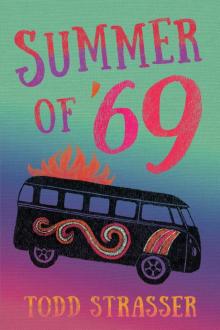 Summer of '69
Summer of '69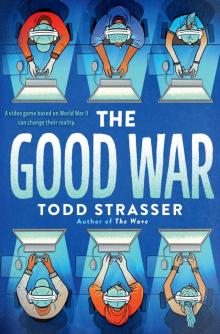 The Good War
The Good War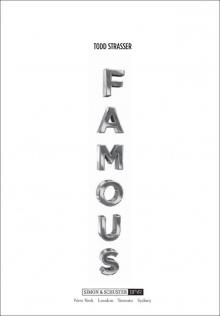 Famous
Famous If I Grow Up
If I Grow Up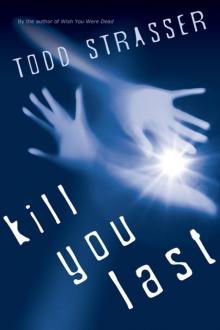 Kill You Last
Kill You Last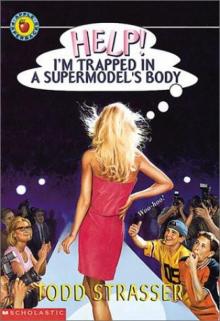 Help! I'm Trapped in a Supermodel's Body
Help! I'm Trapped in a Supermodel's Body Price of Duty
Price of Duty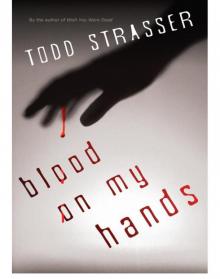 Blood on My Hands
Blood on My Hands Help! I'm Trapped in My Sister's Body
Help! I'm Trapped in My Sister's Body sidewayz glory
sidewayz glory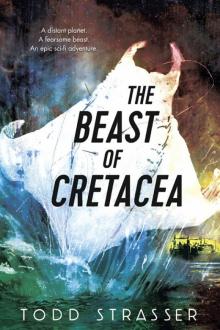 The Beast of Cretacea
The Beast of Cretacea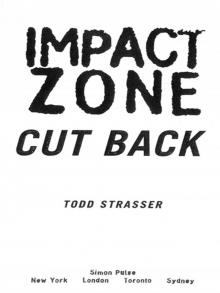 Cut Back
Cut Back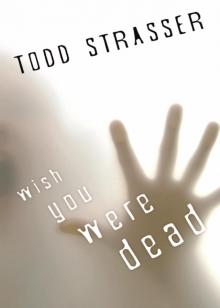 Wish You Were Dead
Wish You Were Dead The Wave
The Wave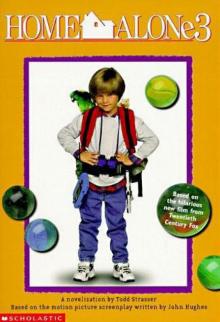 Home Alone 3
Home Alone 3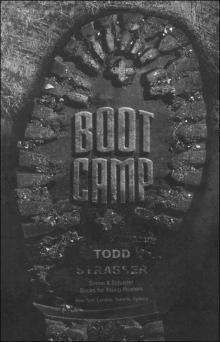 Boot Camp
Boot Camp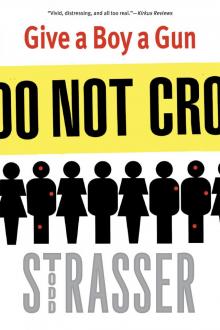 Give a Boy a Gun
Give a Boy a Gun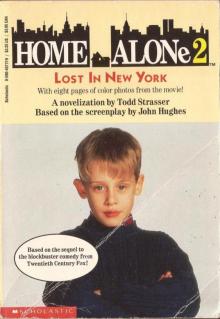 Home Alone 2
Home Alone 2 The Shore
The Shore Can't Get There from Here
Can't Get There from Here Home Alone
Home Alone Close Out
Close Out No Place
No Place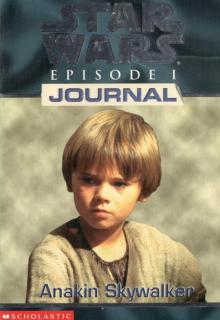 Star Wars - Episode I Journal - Anakin Skywalker
Star Wars - Episode I Journal - Anakin Skywalker